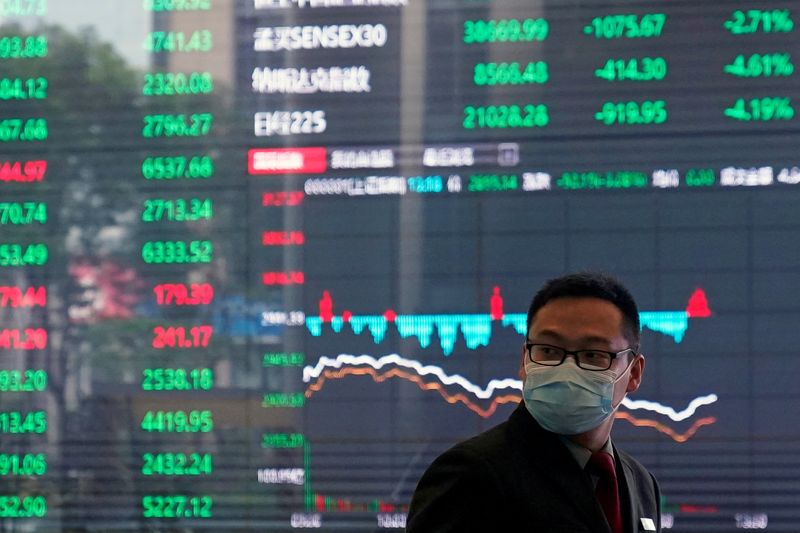Trump announces 100% chip tariff as Apple ups U.S. investment
Investing.com -- Most Asian stocks fell on Thursday after hawkish signals from the Federal Reserve spurred deep losses in technology stocks, while weak economic readings fueled more concerns over a Chinese economic slowdown.
Markets also took a weak lead-in from Wall Street indexes, which closed lower in overnight trade on renewed concerns over rising U.S. interest rates.
Asian tech battered by hawkish Fed minutes
Tech-heavy Asian indexes logged the heaviest losses on Thursday, with Hong Kong’s Hang Seng index sliding 1.6%, while South Korea’s KOSPI shed 0.6%.
Futures for India’s Nifty 50 index also pointed to a softer open, likely on weakness in the country’s heavyweight tech stocks. Hotter-than-expected inflation readings also weighed.
The tech sector was hit by renewed fears of rising U.S. interest rates, after the minutes of the Fed’s July meeting showed that most policymakers supported higher interest rates to curb stubborn inflation.
The bank had hiked rates by 25 basis points in July, and flagged more potential hikes if U.S. inflation proved to be stubborn.
Strong inflation readings from the world’s largest economy had already put Asian tech on a downturn over the past three sessions, as the prospect of U.S. rates remaining higher for longer pressured the outlook for tech earnings.
Chinese stocks extend losses as Fitch flags potential rating risk
China’s Shanghai Shenzhen CSI 300 and Shanghai Composite indexes fell 0.3% and 0.2%, respectively, extending losses into a fifth straight session as ratings agency Fitch flagged a potential risk to China’s sovereign rating.
The ratings agency told Bloomberg that any extension of government debt was likely to spark a reconsideration of China’s A+ rating. But while Fitch does not expect such a scenario to occur, the ratings agency also expects the government to provide little debt support to the flailing property sector.
Fears of a debt meltdown in China’s property sector have been a key weight on sentiment in recent sessions, especially as Country Garden Holdings (HK:2007), China’s biggest developer, struggles to meet its debt obligations.
Losses in property stocks also weighed heavily on the Hang Seng, pulling it down to a nine-month low. The CSI 300 and Shanghai Composite were both sitting at two-month lows.
Markets are now awaiting more stimulus measures from the Chinese government, starting with a potential interest rate cut next week.
Weak trade data adds to China concerns
Japan’s Nikkei 225 index slid 1.1% after data showed the country logged an unexpected trade deficit in July. Japan’s exports also shrank for the first time in two years, with a sharp drop in shipments to China.
A bigger-than-expected drop in Singapore’s key non-oil exports also pointed to more weakness in China, given that the country is the island state’s biggest export destination.
Most Southeast Asian stocks sank on Thursday, with Philippine shares down 0.2% ahead of a central bank rate decision later in the day. The Philippine central bank is expected to keep rates on hold.
Concerns over China dragged Australia’s ASX 200 down 0.9%, while data also pointed to some cooling in the country’s jobs market.
